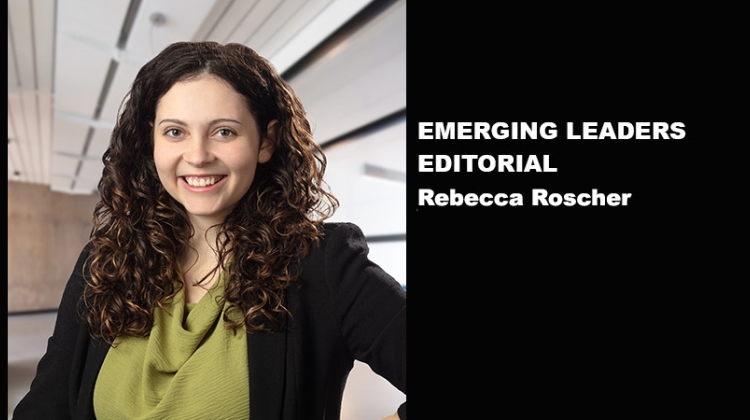Early-in-career professionals are prone to falling into the trap of squeezing themselves into a predefined model of achievement. A linear career path poses the risk that these professionals may feel trapped and dissatisfied. Aligning work to your personal interests instead provides a sense of purpose, as displayed by the principle of ikigai. This Japanese concept celebrates the intersection of what you love and what you’re good at, but also what the world needs and what you can be paid for.
What does the pharmaceutical world need now and in the coming years? In this time of volatility, uncertainty, complexity, and ambiguity (VUCA), technical standards can rise at any given time through advancements in automation, machine learning, and artificial intelligence. Further, we have seen how war, natural catastrophes, and pandemics can alter resource availability and our complete way of working, impacting job safety in general.
This VUCA world demands one major thing from employees: a quick adaptability to change, which makes a broad skill set highly valuable. This is why organizations started emphasizing opportunities for lateral career movements. But how can we bridge the demand for lateral skills with the pursuit of professional success when society only measures success by vertical movement? How do we prevent the impression of career stagnation?
First, we need to gain a relaxed mindset that embraces change. Second, we ought to redefine our perception of career to include fluidity. This will allow for the necessary flexibility of growth. Unlike career development, which suggests a fixed path and endpoint like product development, professional growth implies no pre-determined direction or limit. It carries a sense of nurturing, allowing the possibility of aligning personal and professional priorities.
Aligning work to your personal interests provides a sense of purpose, as displayed by the principle of ikigai.
How to Change and Grow Successfully
Know Your Priorities and Drivers
To build a stable core for the professional life, self-awareness and reflection are key. As elaborated in The Palgrave Handbook of Fulfillment, Wellness, and Personal Growth at Work, regularly assessing your current drivers empowers you to make decisions more easily and with a deeper sense of purpose [1]. Intuitive career decisions invite you to pursue what feels right in the moment, which leads to more fulfilling career decisions and a clearer understanding of your authentic self and goals, helping you be more confident in yourself and better prepared for change.
Visualize SMART Goals
Define your goals based on your interests and drivers, then visualize them via a vision board, an Excel file, or a Post-it note. Think of your goals as progression parameters and make them SMART: Specific (somewhat), Measurable, Achievable (with your own efforts), Relevant (to you personally), and Time-bound (transient). With SMART goals, you’re in a better position to track work goals, such as taking on new assignments to polish skills you want to hone. Before or during big changes, you can create your safety net by assessing how you can enable your goal pursuit even after making a change. It will let you focus on avoiding stagnation in future situations instead of mourning old ways.
Follow Your Intuition and Make Interest-Based Decisions
Professional stability is not often felt based on how secure your job is, but rather when you feel your work has purpose and are satisfied with your tasks and responsibilities. We flourish when we follow our passions. If you follow your interests when choosing a new opportunity, even despite high risks, it will never be a wrong decision. Interests might shift, just as priorities do over time, but that is not a problem if we allow ourselves to be flexible. Aligning your professional and personal interests will let you enjoy work more and make you resilient to the stress of frequent change.
Reduce the Tension of Getting it Right Immediately
Just like mobile phone software and apps that receive regular updates, we can continuously improve through trial and error until we succeed. If the current version of yourself didn’t get it right the first time, you will learn from this experience. Adapt your approach so that the next version of yourself might succeed.
Learn New Things and Establish a Broad Talent Portfolio
Focusing on professional growth through lifelong learning builds a diversified and evolving talent portfolio, which is crucial to thrive in today’s job market. Exposure to new topics and continuously acquiring new skills enhances resilience and adaptability, as well as employability, during VUCA times. Gradually reduce the unknowns step by step; this will empower you to handle future uncertainties and manage significant changes.
Redefining Success and Embracing Change
The shift toward professional growth over career development reflects a broader redefinition of success. Modern professionals are moving away from rigid career paths and are embracing flexible, interest-driven approaches. By focusing on growth, individuals can adapt to the fast-changing job market and pursue careers aligned with their evolving priorities without fear.
Professional growth leads to a more fulfilling, adaptable career, where success is defined by personal satisfaction, continuous learning, and alignment with core values. This approach helps us achieve career success alongside a greater sense of purpose and wellbeing.
Winston Churchill said, “To improve is to change; to be perfect is to change often.”





